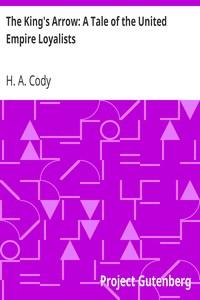|
|
Read this ebook for free! No credit card needed, absolutely nothing to pay.Words: 232100 in 61 pages
This is an ebook sharing website. You can read the uploaded ebooks for free here. No credit cards needed, nothing to pay. If you want to own a digital copy of the ebook, or want to read offline with your favorite ebook-reader, then you can choose to buy and download the ebook.

: The Ancient Church: Its History Doctrine Worship and Constitution by Killen W D William Dool - Church history Primitive and early church ca. 30-600 Christianity@FreeBooksTue 06 Jun, 2023 INTRODUCTION. This remarkable and fascinating romance, in its English version, was originally published under the auspices of the Oriental Translation Fund sixty-five years ago. Issued in the form of a costly folio, it was buried in great libraries, and scarcely found its way at all to the general public. The publishers of the present edition, becoming acquainted with the rare merits and the intense interest of the work, have resolved to bring it, in a more available shape, to the attention of the large class of refined readers who cannot fail to be both delighted and edified by it. The preface by the accomplished translator of the work from the Persian dealt much with philological matters which are of no interest save to critical students or linguists. Omitting these portions, re-arranging and condensing the rest, and adding some new matter, the present editor seeks here simply to furnish such an introduction as will enable those who approach the work to occupy the right point of view for an appreciative perusal of it. He has inserted in the text itself, in order not to encumber the pages with footnotes, such changes or explanatory phrases as will remove any obscurities which might perplex the reader. The story consists of seven connected tales, of the same general character with those of the Arabian Nights Entertainments. In exciting interest, in ethical charm, in imaginative richness of startling adventures, it is not one whit inferior to the very best of those world-renowned masterpieces. It is a magnificent specimen of that ideal freedom of genius which creates its own world, peoples it with its own productions and events, and sympathizes, in vivid interior reproduction, with the romantic experiences of its characters and their destinies. Herein it is a valuable education of the reader in dramatic liberty of mind, fertility of fancy, quickness and strength of emotional action and reaction. The whole production is also marked by an eminently humane and heroic spirit. The illustrious personage who figures as its hero, and whose thrilling adventures it records, was in his time regarded as an unequalled pattern of bravery, wisdom, and generosity. Hatim ben Ubaid ben Sa'id, chief of the tribe of Ta?, lived in the latter half of the sixth century of the Christian era. His native country was Arabia felix, otherwise named Yemen. As the country was then divided into numerous tribes, it is probable that his sway extended only over a few thousand warriors who bore his family name of Ta? and owned his chieftaincy. At all events he had in the highest degree all the virtues then most admired. An Arabian author of the twelfth century says of him: "Hatim was brave, liberal, wise, victorious. When he fought, he conquered; when he plundered, he carried off; when he was asked, he gave; when he shot his arrow, he hit the mark; and whomsoever he captured, he liberated." It is related of him that when he went a-hunting he never wounded the creatures he pursued with an arrow or any other deadly weapon, but used to catch them in nets and again set them at liberty. He never, it is said, uttered abusive language, but always spoke mildly. He possessed beauty so extreme that all men and women admired him and coveted his companionship. When any one approached him with a complaint and laid hold of the bridle of his horse, he would address the suppliant in consoling terms, examine into his grievances and afford him protection; for tyranny or wrong he countenanced not. The Greek emperor contemporary with Hatim once sent an embassador to Yemen to ask of the chief the gift of a favorite horse. The magnanimous Arab had received no intimation either of the embassy or of its object, and therefore was quite unprepared for the reception of the embassador when he arrived. In order to provide a suitable entertainment for his distinguished guest and his attendants he had no other resource than to order his favorite horse to be killed and roasted for the occasion. This was done. After the feast the embassador stated the wish of his royal master. Hatim replied: "It is too late. The horse has been slain for our repast. When you came I knew not the object of your journey, and had no other food to offer you." The second anecdote is still more astonishing. It is indeed quite on a par with the transcendental idealism of the goodness of Buddha, who is said actually to have given himself as a meal for a famished tigress. One day Hatim went to the desert, and there suddenly came upon a lion. He said in his heart: "It will be inhuman for me to attack this lion with my weapon; yet if I smite him not he will devour me. Perhaps by the divine favor I may soothe his heart." In mild tones he said to the lion: "Creature of God, if thou art hungry for my flesh, it is at thy service; devour me and be not sad-hearted." At these words the lion lowered his head and fell at the feet of Hatim and began to wipe his eyes against them. Hatim said: "Creature of God, far be it from me that thou shouldst depart hungry. Of my own free will I give myself up, and if thou eatest me not it will distress me." The lion thereupon laid his face in the dust and then departed to his haunt. The story, in its child-like na?vet? and sweetness, is closely akin to some of the legends of Saint Francis of Assisi. In the Kozal-ul-Sufa is the following brief notice of the death of Hatim. "In the eighth year after the birth of the Prophet, died Noushirwan the Just and Hatim Ta? the Generous, both famous for their virtues." In the same work it is further stated that toward the close of the life of Mohammed the host of the Faithful, in propagating the religion of the prophet, ravaged and laid waste the territory of the tribe of Ta?. Adi, the son of Hatim, fled to Syria; but his sister and such of his people as were spared were brought as prisoners to Medina. The prophet gave them their choice of embracing the faith or of having their heads cut off. Then the daughter of Hatim stood forth and pleaded the cause of her tribe. On hearing the revered name of Hatim, Mohammed issued a free pardon to the whole tribe of Ta?. According to D'Herbelot, the tomb of Hatim is to be seen at Aovaredh, a small village in Arabia. The spot consecrated by his dust is still visited with the reverence due to the memory of the generous and devoted. To the thoughtful scholar the highest interest of the whole work lies in the fact that it is an embodiment of the Mohammedan ideal of human excellence. Hatim walks before us as the impersonated model of what man should be according to the standard of Islam. In that ideal the four chief virtues are faith, veracity, kindness and blind submission to the decrees of fate. The Christian ideal puts in place of blind submission to the will of God as fate, an intelligent and loving co?peration of the will of the creature with the will of the Creator as rational freedom. The Islamite hero, in shooting at the mark on which his life depends, confides all to Allah and shuts his eyes as he shoots. The Christian pattern under such circumstances would equally trust in God, but also take careful aim. For he hears God say: "I will guide thee with mine eye, seeing with thine!" THE ADVENTURES OF HATIM TA?. In the kingdom of Khorasan there lived a monarch named Kurdan Shah, who supported in his train five hundred thousand horsemen and ten thousand couriers, also musketeers and archers. Each of his nobles he entrusted with the care of a province; his justice and equity were such that he made the lion and the lamb drink water from the same fountain; and he never oppressed his subjects. In his reign there lived a merchant, named Burzakh, who possessed much wealth and dignity, and whose agents travelled in all directions in pursuit of commerce. He himself was on intimate terms with the king, and the monarch's regard for him was extreme. After some time, when his hour arrived, he died, and left no heir except an only daughter, Husn Banu, on whom was settled the whole of her father's wealth. At this period Husn Banu was twelve years old, and Burzakh on his death-bed left his daughter to the king's care, who with great kindness said, "She is my own daughter"; and he accordingly made over to Husn Banu all the wealth left by her father. Free books android app tbrJar TBR JAR Read Free books online gutenberg More posts by @FreeBooks
: Glen of the High North by Cody H A Hiram Alfred - Love stories; Alaska Fiction@FreeBooksTue 06 Jun, 2023

: The King's Arrow: A Tale of the United Empire Loyalists by Cody H A Hiram Alfred - United Empire loyalists Fiction@FreeBooksTue 06 Jun, 2023
|
Terms of Use Stock Market News! © gutenberg.org.in2025 All Rights reserved.






